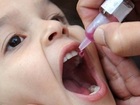A new SARS-like virus has killed two more people in Saudi Arabia, taking the number of deaths from the coronavirus that the kingdom has announced to seven in one week, the health ministry said.
"The health ministry has announced that three infections by the new coronavirus have been registered during the past days in al-Ahsaa. Two of the victims have died while the third is in a stable condition," state news agency SPA said late Sunday.
 Full Story
Full Story
Peter Nguyen was a promising medical student when his school learned that he had tested positive for the hepatitis B virus. He said he was blackballed by school administrators and forced to halt his studies.
"I knew the stigma" that came with a hepatitis diagnosis, Nguyen said. But he thought that a medical school, of all places, would understand. "I came there expecting help. Instead, I was greeted with discrimination."
 Full Story
Full Story
Men who are bashful about needing help in the bedroom no longer have to go to the drugstore to buy that little blue pill.
In a first for the drug industry, Pfizer Inc. told The Associated Press that the drugmaker will begin selling its popular erectile dysfunctionpill Viagra directly to patients on its website.
 Full Story
Full Story
A child has contracted polio for the first time in Pakistan's militant-infested tribal belt since the Taliban banned vaccinations a year ago, a U.N. official said Monday.
"The new case has been detected in North Waziristan where we had been denied access in June last year," the World Health Organization's senior coordinator for polio eradication in Pakistan, Elias Durry, told AFP.
 Full Story
Full Story
The Man Nyon Pharmacy is lined with rows of colorful packages containing everything from dried bear bile and deer antler elixir to tiger bone paste and ginseng. But the ancient "Koryo" medicine provided at this popular dispensary isn't just for minor aches and pains.
It has been integrated into the health system from the smallest village clinic all the way up to the nicest showcase hospitals in the privileged capital of Pyongyang. Both modern and traditional styles of healing have long been uniquely intertwined nationwide with doctors from both schools working in tandem under one roof.
 Full Story
Full Story
Immunologists expressed concern Friday about the "dangerous" work of scientists in China who created a hybrid bird flu virus that can spread in the air between guinea pigs, and now lives in a lab freezer.
The team from the Chinese Academy of Agricultural Sciences and Gansu Agricultural University wrote in the journal Science they had created a new virus by mixing genes from H5N1 "bird flu" and H1N1 "swine flu".
 Full Story
Full Story
Five Saudis who died after contracting a new SARS-like virus last week had not travelled abroad, a health ministry doctor said on Saturday.
"After questioning relatives, it turned out that none of these people had been abroad before being infected," Dr Ziad Mimish, who heads the ministry's disease prevention unit, told Agence France Presse.
 Full Story
Full Story
The U.S. food and drug regulator on Friday called the addition of caffeine to children's foods like chewing gum and jelly beans "dangerous" and warned of a possible crackdown.
Food and Drug Administration deputy commissioner Michael Taylor said the rise in such caffeine-added products outside the beverage industry was "very disturbing," after candy giant Mars Inc. announced a caffeinated version of its Wrigley gum.
 Full Story
Full Story
Some of the most devastating forms of cancer have genetic similarities even though they strike different body parts, according to new studies out Thursday.
The new research -- one study focused on a form of leukemia, in the New England Journal of Medicine, and a second on endometrial cancer, in Nature -- could offer a pathway to new, more effective treatments.
 Full Story
Full Story
Suicide rates are rising dramatically among middle-aged Americans, according to U.S. government statistics, which showed a 28 percent spike from a decade ago in the number of people taking their own lives.
The U.S. Centers for Disease Control and Prevention said the figures show more people taking their own lives than dying in car accidents, and attribute the increase to the sharp rise in suicides among adults aged aged 35 to 64.
 Full Story
Full Story



